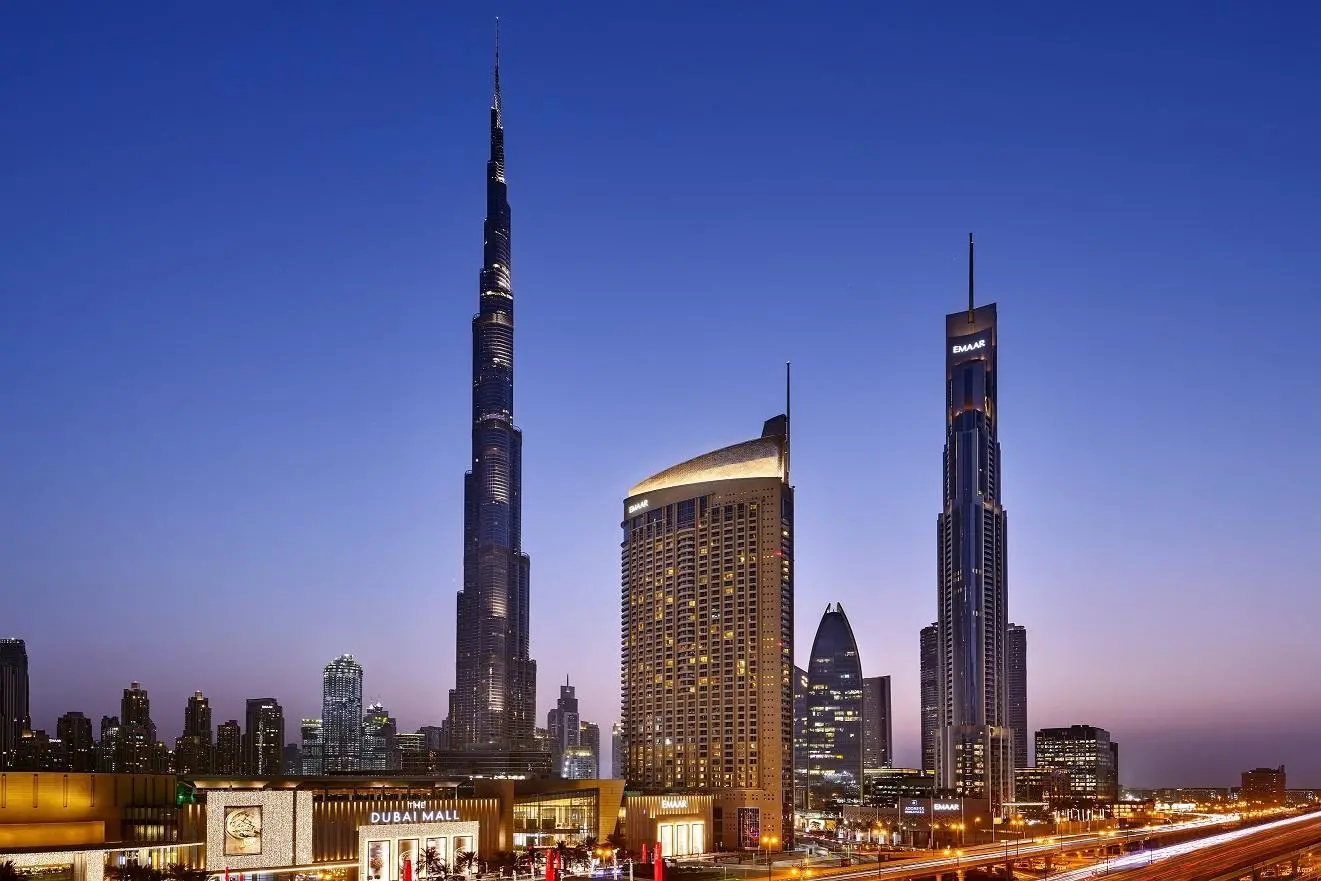PHOTO
The chief executive of Abu Dhabi National Hotels (ADNH), one of the largest owners of hotel assets in Abu Dhabi, believes that Dubai’s Expo 2020 event will help to alleviate the tough market conditions faced by the UAE’s hoteliers.
Speaking to Zawya during an interview at ADNH’s headquarters in Abu Dhabi, CEO Khalid Anib also said that the group has the appetite and the leverage to venture into new acquisitions, adding that the recent acquisition of Emaar’s five hotels in Dubai supported the firm’s bottom line in its latest financial results.
Anib also said that Abu Dhabi needs to ramp up its budget for developing the industry by increasing spending on tourism marketing for the emirate, and bringing it up on par with Dubai’s destination marketing efforts.
For the first quarter of 2019, ADNH recorded net profit of 94.8 million United Arab Emirates dirhams ($25.8 million), down by 2.6 percent from 97.3 million dirhams during the same period last year, according to a filing at the Abu Dhabi Securities Exchange (ADX).
“ADNH financials for the first quarter were positive. We acquired five hotels from Emaar, so it helped in improving or mitigating the loss in certain areas,” Anib said.


Abu Dhabi National Hotels chief executive officer Khalid Anib. (Image courtesy of Abu Dhabi National Hotels)
In November last year, ADNH agreed to buy five hotels from Emaar Hospitality, a unit of Emaar Properties for 2.2 billion dirhams. The hotels purchased included four hotels in Downtown Dubai – The Address Boulevard, The Address Dubai Mall, Manzil Downtown and Vida Downtown, as well as the Address Dubai Marina hotel.
On the rationale for the deal, Anib said: “It was purely financial…it was an excellent opportunity and we still believe actually that these hotels achieved the budget for the first quarter. There are not many assets that will give 9 percent return. We also believe that that location will remain one of the best locations in the UAE.”
Anib told Zawya that 65 percent of the deal was financed by First Abu Dhabi Bank, while the rest was financed through equity. (Read more here).
Issam Kassabieh, senior financial analyst at Menacorp, said that the deal “has served both companies quite well”.
“Emaar Properties de-risked non-core assets and focused on creating a stable revenue stream through asset management which is ideal for a real estate company in a difficult real estate market,” Kassabieh said in emailed comments to Zawya.
“For ADNH, the company managed to get premium assets added to its balance sheet that will allow it to boost its returns and expand their business portfolio to become regional leaders faster than if they were to do it organically,” he added.
The group also recorded 367 million dirhams of consolidated revenue during the first quarter of this year, up 1.1 percent from 331 million dirhams during the same period in 2018.
The group has three segments: hotels, retail and transport services. The hotel segment of the group recorded a 13 percent year-on-year increase in net profit during the first quarter of this year of 68 million dirhams, according to the filing, which was attributed partly to the acquisition of the five hotels in Dubai.
Appetite for deals
On whether ADNH is looking at other acquisitions, he said: “Of course, we still have the appetite to venture into any opportunity that would make sense financially, and generate value for shareholders. We don’t have any geographical constraint in that whether local, regional, or international.”
The firm is not actively pursuing deals outside the UAE, according to Anib.
“But if there is the right opportunity we will definitely consider it - in mature markets of course, within GCC, Europe or North Africa. As long as it makes sense financially, we have no constraints to expand.”
Speaking about the firm’s financing strategy, ADNH’s chief executive said: “We are running now three times our EBITDA (earnings before interest, tax, depreciation and amortisation). Within our industry, it (debt) can go up to five times EBITDA, so we believe we still have good leverage to acquire other businesses.”
In the first quarter of this year, the cost of financing spiked to 17.6 million dirhams from AED 3.3 million in the same period last year, according to the company’s ADX filing.
Sukuk or bonds issuance is not on the table for the group, according to Anib. “Not at this stage, as we want really to focus on our core, which is the hotel business.”
The retail segment of ADNH Group saw a drop in net profit to 11 million dirhams in Q1 2019, down from AED 16 million in Q1 2018 due to the “implementation of taxes and ongoing decrease in sales”, according to the ADX filing.
ADNH also recently launched a company known as Abu Dhabi National Hospitality Management to manage hotels on behalf of other owners.
“This entity has been created basically to manage our own hotels, because we have recently converted (a) few of the management agreements into franchise, and that entity with its full team is managing these properties,” he said.
“We are also looking to extend that management role to third party owners, managing their hotels under international brands. We have recently signed our first agreement for hotel management on behalf of Renaissance Dubai,” he said, adding that ADNH will begin managing the property next month.
“We are also in discussions with other various owners today, but nothing is really committed at this stage.”
UAE destination marketing
Speaking about the outlook for the hotel industry, Anib said: “In the short term, it is very challenging. However, we are at the door of 2020 Expo, so that would certainly improve the sentiment,” he said.
“We hope that we will be running on that momentum, to continue to grow beyond 2020. 2020 is an opportunity for UAE to be in Expo even further, and by then we believe that the supply will also stop coming in, and if demand continues to grow the way it is growing today, that will be very positive for the industry,” he added.
“I expect a turnaround in 2020. In 2019, we are still in (a) challenging environment as the fundamentals are still the same. There is really nothing that would eventually uplift the sentiment. However, beginning of 2020, we believe that demand will start to grow in both Abu Dhabi and Dubai,” he added.
“We’re looking at doing better than 2018, which is good in this current challenging business environment. That’s our objective,” he said.
According to Menacrop’s Kassabieh, “the hotel industry as of recently has been weighed down by a strengthening U.S. dollar, geopolitical tension and general negative global economic outlook”.
“It has also been under pressure due to oversupply which has impacted profitability,” he said.
“But one must take into consideration that forward thinking is key and with the Expo 2020 approaching in addition to the longer term strategies set in place for the future, new hospitality assets are required to get ahead of competition.”
The UAE is expected to witness the opening of an additional 6,500 hotel keys by the end of the year ahead of Expo 2020, according to Colliers International’s MENA hotels quarterly review for Q1 2019.
All UAE markets, with the exception of Abu Dhabi, which witnessed a 11 percent increase in average daily room rates, experienced ‘rate compression and a drop in occupancy’, the report said.
For the UAE market, Anib said he expects further growth in tourists from China and India, adding that “the currency exchange also plays a role”.
“The dollar has been stronger lately, which impacts the European tourists. But in broad terms, the UAE has the right infrastructure and continue to attract tourists from all over the world.”
In March this year, the Abu Dhabi government announced it would allocate a budget of half a billion dirhams for tourism marketing campaigns in the emirate over the next three years. (Read more here).
According to the Department of Culture and Tourism (DCT), Abu Dhabi drew over 10 million hotel guests in 2018, and the additional investment in marketing is aimed at raising the number of visitors by increasing awareness of the emirate locally, regionally, and internationally.
The Abu Dhabi government has also reduced municipal and tourism fees charged on hotel stays in the emirate, which is expected to result in one billion dirhams of savings for hotel owners over the next three years.
“We believe we need more than that (fees reduction). We need destination management with a much larger budget than what it is today,” he said, adding that Dubai’s tourism marketing budget is way ahead of that of the UAE capital.
“I think Abu Dhabi has a lot to offer in terms of nature, diversity, culture, and heritage. But unfortunately, it’s not really marketed as it should, and that is not because of the lack of competence of the authority. Today, we need to spend more money in marketing the destination,” he said.
(Reporting by Nada Al Rifai; Editing by Michael Fahy)
Our Standards: The Thomson Reuters Trust Principles
Disclaimer: This article is provided for informational purposes only. The content does not provide tax, legal or investment advice or opinion regarding the suitability, value or profitability of any particular security, portfolio or investment strategy. Read our full disclaimer policy here.
© ZAWYA 2019





















